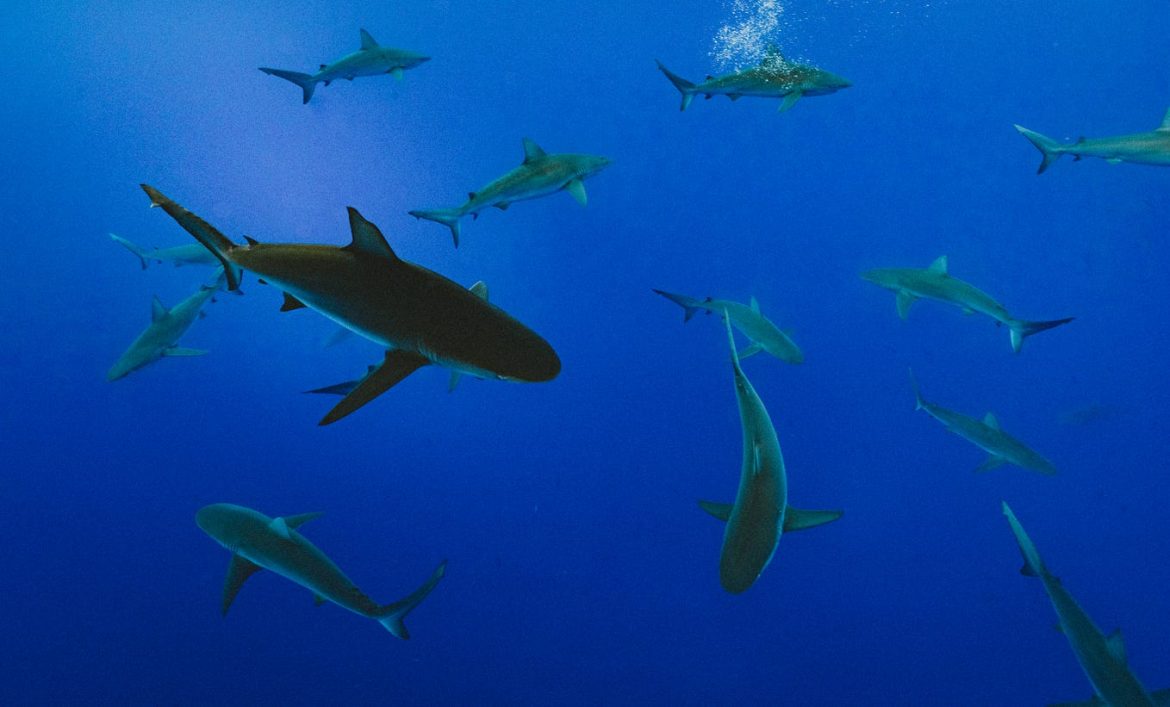A study has found that a climate-disrupted ocean is pushing sharks, rays and other species to flee ever-hotter water in the tropics, only for them to be killed by increasingly intense upwells of cold water from the depths.
One of the authors of the paper described the “eerie” aftermath of a mass die-off of more than 260 marine organisms from 81 species in a singular event of extreme cold upwelling off the coast of South Africa in 2021.
Among other things, the paper, which was published in Nature Climate Change on Monday, found that shifts in ocean currents and pressure systems driven by climate breakdown were increasing the frequency and intensity of upwellings, which may in turn increase the vulnerability of migratory species such as bull sharks.
Scientists focused on the mass die-off event in 2021, which they were able to track in unusually precise detail because one of affected creature that survived was a bull shark that had been satellite tagged. They found it had been caught in water that fell more than 10C below the temperature that such tropical species were used to.
The paper details how the shark changed its behaviour in an attempt to avoid the cold areas. It swam much closer to the surface than normal and moved outside its normal migration pattern.
Read also: Report shows UK facing food shortages, price rises after extreme weather
Many of the affected sea creatures’ carcasses washed up on the shore of South Africa, including the pup of a big manta ray that had been aborted by its traumatised mother.
“It was eerie to see so many species washed up dead,” said Ryan Daly, one of the authors of the paper. He said he was surprised that even the very mobile species, such as manta rays and bull sharks, were caught in the upwelling. “You’d think they would have swum away but they got squeezed. They couldn’t escape,” he said.
To understand the broader trends behind the die-off, the scientists tagged other sharks and used 41 years of sea surface temperature data and 33 years of wind records to investigate the frequency and intensity of cold “killer events” inshore of the Indian Ocean’s Agulhas current and the east Australian current in the past 30 years.
They found cold upwelling events had increased in frequency and intensity in these regions between 1981 and 2022. Other species killed in such events include whale sharks, convict surgeonfish, bigeye trevallies and common blacktip sharks.
Story was adapted from the Guardian.
